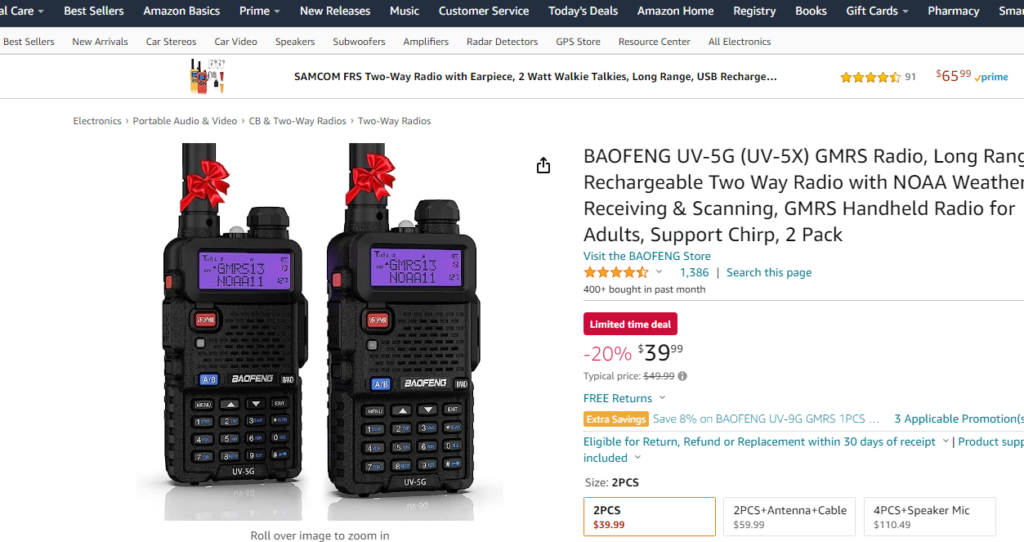Last fall, I talked about the fact that I was planning on investigating the GMRS licensing process. I did it a couple of weeks ago. Tomorrow, I am going to give a step by step on how to do it so I will save that information and opinions about that part of the process until then.

It is no secret that cell phones have largely surpassed amateur radio with ubiquity and variability. With Bluetooth pairing and voice, text and internet everybody can communicate with everybody caravanning or in loose group settings. Where radios really shine are when the pavement ends. They are also cheap, don’t need a service plan or service infrastructure.
The tin-foil hatters would say, it is nearly unenforceable and an unnecessary government intrusion to get a license. Once you do, you are on a list forever. And to them I would say that I agree. In fact, to be in radio is to be known. I actually went looking to see why I would want to bother getting a GMRS radio license. Here were some of my reasons.
- Don’t go looking for trouble. I would say that nearly all people into radio are law and order oriented people. The cost of $35 for ten years and covers your entire family is a pretty low bar in the first place.
- I very well might want to go deeper into radio. I don’t want to become an outlaw in the community that I am seeking more information about joining. See item 1.
- Even my self-imposed stay in the FRS band leads me to not use the radios very much. Having gear without experience is like having food and not knowing how to cook. I am looking to remove barriers for me to using them more and getting valuable experience.
Interestingly enough, the blister pack FRS/GMRS radios that can be purchased for less than $50 and box stores have some channels that are recognized in both radio spectrums. Apparently, the reason that you don’t need a license to operate those radios is the power output is tuned down. Like many paradoxes in law and government, it is required to have a license use the GMRS frequencies but the equipment is limited to the point that it falls into an exemption that no license is required.
All of this time, I have been under the assumption that I needed a license to operate in the GMRS frequencies with the handheld walkie-talkies not realizing that the equipment itself was exempt. What else I took out of this was that you probably still shouldn’t use them because people with more powerful radios in that spectrum are expecting legal radio decorum. For example, there is a duty to announce your radio call sign when speaking.
This actually got me wondering what the point was in the first place. It turns out that the full power radios can also be purchased just as cheaply and these are the radios where you should have a license. These radios can take advantage repeaters, they have way more range and they have the capability to swap antennas as a few examples. The more powerful radios can also talk to the cheaper FRS/GMRS as well, albeit you will be limited to the capability of the less powerful radio.
I am definitely thinking about buying an upgrade because they are so cheap and now I am legal and so is anybody I hand a radio to for the situation. That being said, I think that if you are going to stay on the fringe of amateur radio, you should probably stick to the blister pack radios. You don’t want to have to use your call sign to radio out to the yard or the shop as an example. But if you are getting more interested in the subject, this is a very easy entry point.
End Your Programming Routine: I was going to wait on this until after I got my Software Defined Radio setup to do this. But given my life’s current circumstances, I can’t really afford to spend hours squirreled away on a hobby. It is the same reason I haven’t been out in the shop for months or am doing much gardening this year. Not only that, getting my radio’s working helps in those areas I am not able to be active in this year because I can use that as a tool to take a couple steps away.
Recent Comments